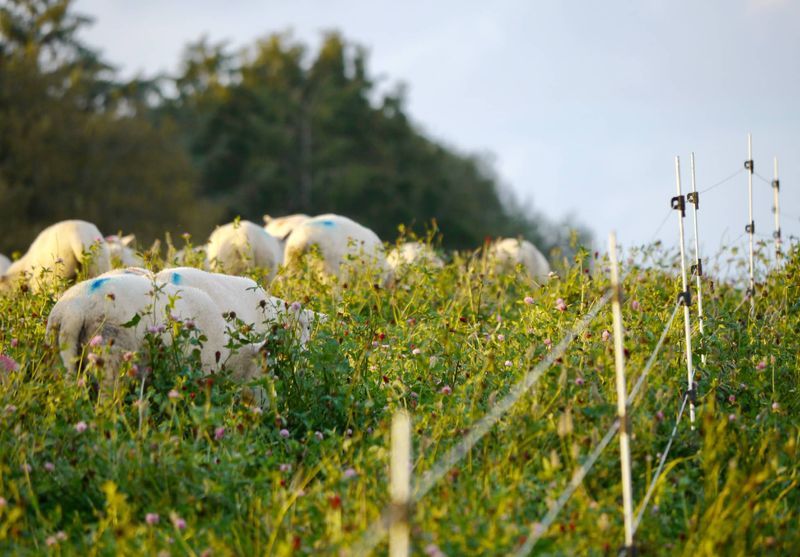Essebeare Farm, Witheridge, Devon – a ‘Pasture For Life’ certified organic farm which focuses on rotational grazing, hedge and bank restoration and agroforestry.
.
The Pasture for Life organisation ‘champions the restorative power of grazing animals on pasture’:
Grazing animals on 100% pasture brings positive impacts for biodiversity and carbon, human health and wellbeing, and animal health and welfare. Pasture for Life works on the ground, every day, to restore ecosystems, implement positive change in our food and farming systems, and demonstrate the benefits of 100% pasture fed.
In this week’s blog entry, they present their new Sheep Case Studies:
Pasture for Life have been leading the research into pasture-fed sheep farming, showcasing how it can be done. This observational research looks at how a number of sheep farmers in different regions of the UK with different systems, soil types and flock sizes are able to feed 100% pasture. These Sheep Case Studies focus on a number of topics, from land management (grazing and infrastructure) and animal welfare (ewe nutrition and condition), to biodiversity and economic benefits.
And one of those is Olly and Rachel Walker of Essebeare Farm, Devon:
Essebeare Farm, Witheridge, Devon is run by Olly and Rachel Walker. It is a 229-acre farm, situated 200m above sea level on a silty clay loam soil. Olly and Rachel have been tenants at Essebeare Farm since 2015. They have been members of Pasture for Life for 4 years and the cattle and beef enterprises have also been certified for this period. The farm was also put into organic conversion in 2018.
Last May, Farmers Weekly went to Essebeare Farm, looking at how a first-gen farmer has revived a livestock farm with a focus on nature, whilst The Ethical Butcher website also looks at the Farm’s produce.

Here’s more from their own website, where they talk of rewinding to restore biodiversity
Essebeare Farm, listed in the Doomsday Book, sits on ancient Culm grassland meadows nestled in a hidden and beautiful Devon valley within the UNESCO North Devon Biosphere. Native Red Ruby cattle and hardy Lleyn sheep roam the 90ha Pasture For Life certified organic farm which focuses on rotational grazing, hedge and bank restoration and agroforestry.
Give land rest and space to do it’s thing: Our land usage:
30% is restored species rich Culm hay meadows with 15 plants in a square meter. There is a serious weight of nature on these acres.
20% is wild land returning to natural processes, including mature broadleaf woodland and wet fen meadows, pure carbon sink.
50% is rotationally mob grazed pastures with many species of grasses, legumes and deep rooting herbs. They are resilient and great for building the soil community.
…